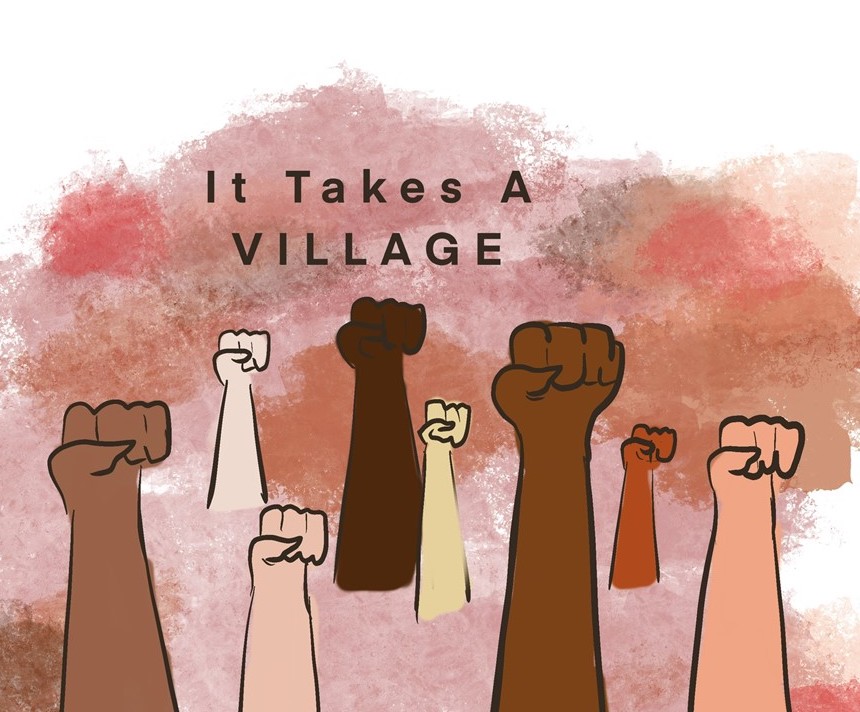Nearly 300 people participated in last week’s healing event. Courtesy photo.
By Iracema Navarro, Political Editor
A healing and solidarity event designed to serve as a bridge between faculty, staff, and students to support social change and anti-racism Thursday drew nearly a capacity virtual crowd of 300.
The “It Takes a Village Black Lives Matter Healing and Solidarity” two-hour Zoom event was attended by 275 people, and read like a Who’s Who of campus officials, including President Thomas A. Parham, the heads of the Academic Senate, ASI and Toro Dreamer Success Center, and representatives of the Africana Studies Department, Rose Black Resource Center, Veterans Resource Center and Positive Psychology Lab.
But though it happened the second week of this new semester, and served as a localized launching point for an examination of the issues that have roiled across this country all summer, it was also a continuation of a conversation that this campus, even virtually, has conducted since the eruption of protests in the wake of the May 25 killing of George Floyd.
On June 9, the CSUDH Department of Africana Studies issued a statement in solidarity with what it termed the “Movement for Black Lives.” It denounced the term “violent protests,” and, as academics, demanded a more “critical analysis” of the activation of “not only a national but international movement that has mobilized a multi-cultural, multi-ethnic, multi-religious, multi-lingual, inter-class movement.”
The statement was not solely concerned with that greater movement. It also included 10 demands “in the interest of supporting Black students, faculty and staff on this campus,” ranging from increasing the numbers of Black students and tenured faculty, hiring more psychologists trained in culturally relevant counseling, additional resources for academic cultural and emotional support to Black women studenst by Black women faculty and staff, and the immediate creation of resource centers for Asian American and Latinx students.
That was followed over the next few days by the majority of campus academic departments issuing statements of support and solidarity with the Africana Studies Department.
On June 10, an anti-racism workgroup was held for campus faculty to develop a shared vocabulary to talk about racism and antiracism, and how to deepen subjective awareness of racial literacy.
And in July, CSUDH President Thomas A. Parham announced a racial reconciliation taskforce that would examine any racial imbalance or underlying discrimination at this campus experienced by Black students, staff and faculty—and whether that discrimination is also experienced by other groups on campus.
While those announcements dealt in large part with confronting any inequities at this campus, last week’s event was about healing, solidarity and community.
President Parham sounded the theme in a prerecorded video in which he said there is healing service.
Professor Monique Turner of the psychology department spoke about the need for a place to have a discussion about social injustice in order to make those listening feel safe because the moment one is open to the issues, that is the beginning of healing.
Program Coordinator of the Toro Dreamers Success Center, Ana Miriam Barragan, began the event by playing music and encouraging those joining to express their emotions before the event. She continued by acknowledging Tongva, the original people of Los Angeles and ensuring every participant had their choice of pronouns appearing near their name
Catherine Jermany, program director of the Rose Black Resource Center, shared the origin of the event’s name in a prerecorded video. The African proverb, “It takes a village” to raise a child, means a community and child must grow and learn together.
Jermany compared the phrase to the current societal situation To stop the injustices of racism, discrimination and oppression it must be done together by willing participants identifying a role in the village.
Personal stories were shared by professors and participants in the break0ut rooms where nearly 15 participants were separated along with a faculty member to have a more intimate discussion about the current problems people of color are facing in the country.
One of the most affecting personal stories was shared by Christian Green, a motivational speaker, author, and adjunct professor of Africana Studies at CSUDH.
Green shared his personal experience of being born in a jail cell, never knowing his parents, and attending five community colleges before eventually receiving his bachelor’s and master’s from UCLA. His main point was the critical need to recognize the trauma and pain that people have gone through in order to being healing.

